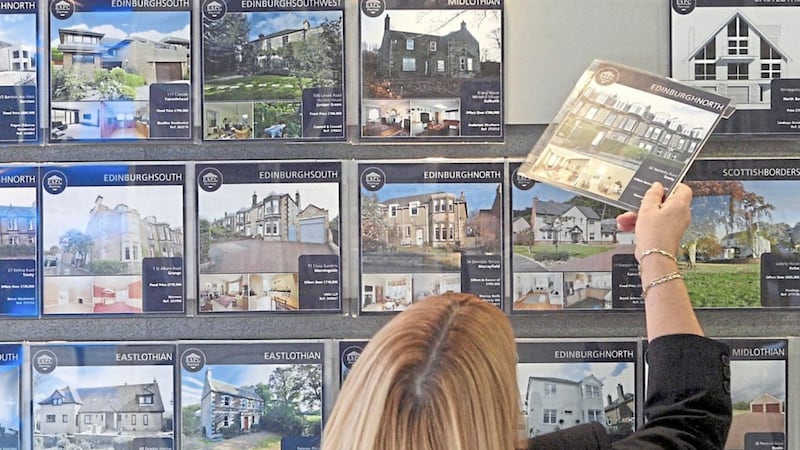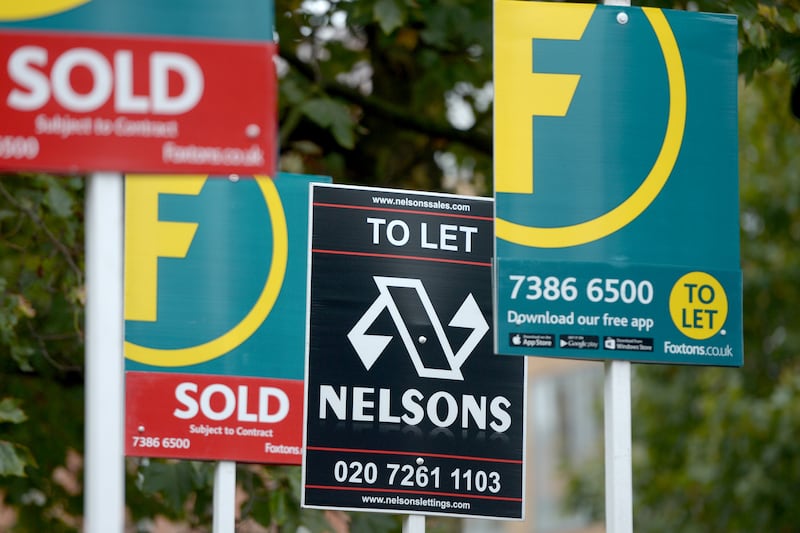THE coronavirus pandemic has had a striking impact on all parts of our economy, including the housing market. The enforced pause in home viewings, sales and moves has seen housing activity drop sharply. But depending on how events play out, the start of a recovery later this year is possible.
As each sector plots its route back out of lockdown, and as one of the biggest lenders in Northern Ireland, we are watching the housing market closely.
The government has set out plans to restart the housing market in England, where viewings can now be carried out under safety and social distancing rules, and removal firms and conveyancers can restart operations (though the restrictions still apply in Northern Ireland).
Prior to the coronavirus crisis Northern Ireland’s housing market was in a relatively stable position, with prices increasing in a steady and controlled manner. The average price to earnings ratio for home-buyers, a good measure of the sustainability of the property market, was sitting at around 4.9 in 2019. That compares with 9.2 in 2007, before the financial crisis and the downturn in the local housing market that ensued in its aftermath.
While Northern Ireland continued to lag the UK average in some economic indicators, the increase in the number of jobs and the fall in the unemployment rate experienced over the last couple of years contributed to a strong and sustainable housing landscape (Danske Bank played an important part in supporting the market, providing one in five of all local mortgages).
So, what happens when lockdown measures start to be eased? Undoubtedly we want to see the housing market recover from the current pause in activity, but it would be remiss not to acknowledge the risks around that happening – not least a potential spike in unemployment, a drop in consumer confidence and the possibility that lockdown measures may need to be reinstated if the spread of the virus does not remain under control. All of these risks would likely further constrain demand for big, life changing purchases such as new homes.
Looking beyond these immediate risks, there are still some aspects of the local housing market that remain quite strong. For example, property prices in Northern Ireland are more affordable than elsewhere in the UK.
Interest rates are also at record lows and it is to be hoped that the rise in unemployment will be tempered by the Government’s Job Retention Scheme, which has provided unprecedented income support for individuals and bought many employers time.
We’ve considered a range of economic scenarios in our own planning, from a relatively modest impact to a severe and prolonged downturn. Our central economic forecast suggests the local economy could contract by 7.5 per cent this year and unemployment may increase to around 5 per cent. That may seem quite bleak, but we are hopeful the economy will start its recovery later this year and that that will continue into 2021.
Predicting what will happen to the housing market over the coming 12 months is obviously very challenging.
Much will depend on how the spread of coronavirus is controlled as lockdown eases, how quickly the economy recovers from the shock, the extent to which the government policy measures succeed in limiting job losses and ultimately how confident consumers are feeling.
And it could be some time before we get an accurate picture of the impact on house prices. We expect prices will contract somewhat, but we believe it will be a relatively short-term correction
:: Richard Caldwell is managing director (personal banking and small business) and Danske Bank








